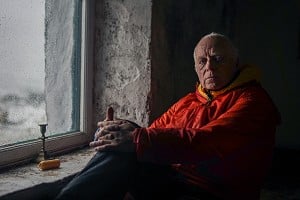
In May 2013 Will Copestake set off on what, so far as we can tell, is a unique amphibious adventure. Machair to Munro began with a circumnavigation of the entire coastline of Mainland Scotland by sea kayak, an epic and mostly solo voyage of several months. The sea safely negotiated, Will then switched to bike and foot for the long gruelling land-based leg working through all 282 Scottish Munros. He's still at it now - hardly a surprise given the wind and snow conditions so far this season. Ullapool native and UKH user Will, 23, hopes to finish some time in April. Or maybe May. He doesn't seem too fussed by deadlines which, with 86 far-flung summits still left to go, is probably for the best. We tracked Will down to find out how he's been getting on.
Will's a well connected guy. For more on Machair to Munro see his website, follow him on Twitter or Facebook
What inspired you to try such an ambitious trip?
First and foremost the ‘doorstep’ expedition aims to see as much of my own home country as possible. By travelling cheap and under my own steam I figured I could stretch the journey around the coast and over the Munros to capture as much of Scotland as possible. I wanted to show that you do not have to go far to have an adventure, sometimes the best places can be closest to home.
I had just graduated university (Environmental Science and Outdoor Ed) and I'm in the wonderful delusion of total freedom. This expedition has become my full time occupation for the year, made possible by stretching the remains of student loans to last as long as possible. To help support the trip I also sell photographic prints on my website.
"The coastal and climbing communities are always looking out for each other and will always be there if you need them; to me this is the most precious discovery I have made on my journey"
Have you done anything remotely as big before?
Nothing as long or continuously hard as this, but at 18 I spent 10 months alone hiking in New Zealand. It taught a lot through trial and error (a lot of errors); I broke trips into shorter chunks of a few days to two weeks long which helped to build confidence being alone in remote places. In 2011 a friend and I hiked from south to north across Iceland, which embedded a passion for long stints in a tent.
Where and when did you start your kayak journey?
My journey started on the 11th of May in a gale on the River Esk. I launched under the motorway bridge by the Metal Bridge Inn and paddled for just one day before being hammered with gales and high waves to be stormbound for two days. The next start set off in better conditions but it was obvious I had vastly underestimated the Solway Firth.
Four months later on September 9th I paddled into Berwick on Tweed, having circled the coast of Scotland. I finished in the nick of time - the very next day saw 10ft swells hammer the east coast.
How did the land stage start?
I started in Berwick on Tweed at the exact spot I left the kayak, two days later. Having never ridden a bicycle with panniers before I was grateful to have my cousin Joe alongside for a wobbly crossing to the west coast. Full circle complete, I then cycled alone to the north starting my first munro at Ben Lomond on September 22nd.
When will you finish and will there be a party?
I have 86 mountains left to summit so the exact date is relatively uncertain. I am hoping to finish around late April to early May. I will complete the journey on Ben Wyvis - somehow despite living in Ullapool I have never climbed it. I'll post my estimated finish date accurately 10-14 days in advance. A party is on the cards but I'm not sure what or where yet. Perhaps a ceilidh in Ullapool.
To your knowledge, has anyone done this circumnavigation/Munros thing before?
As far as I know I am the first to combine the two, however I must confess I haven’t really researched much into it. I am not concerned with being the first but more eager to enjoy the experience and try something a little out of my comfort zone.
Kayaking mostly solo around Scotland sounds intense: what level was your kayaking before starting?
I grew up in Ullapool with the sea at the bottom of my garden. I sailed and paddled a lot as a child but rarely strayed further than a few hundred meters from home. As a teenager I was introduced to river kayaking and found an obsession in exploring the local rivers. In terms of sea kayaking however I started not much more than a day padder, I had done just two overnight paddles previously. The first was a three day journey when I was 12 where my father and I paddled down Loch Sheil to Loch Ailort, the second was a three day group trip around Eigg and Muck organised by kayak legend Brian Wilson (another Ullapool resident), who's famous for his own solo journey around the coastline of Scotland.
How about your background in hillwalking?
I felt more prepared starting the mountains than I did in the kayak. As part of my degree I gained my Summer ML badge which gave a confidence in navigation in addition to many days out on the hill with friends. Of course this aside I still do occasionally get lost and make plenty of small mistakes which usually end in wet boots.
Tell us a bit about the kayaking: What sort of length days were you doing; how did you fare with the weather/seas; was it ever scary?
When I started the journey I set out with a naive highland bias that the south would be easy. It was about 10 minutes into the trip before I realised this was a huge mistake. The Solway firth was exposed, exceedingly tidal and committing. Leaving so soon after fourth year exams I had done absolutely no training, I started slow and somewhat nervously. My arms hurt a lot for the first few weeks, I also had issues with lower back pain which were fixed by jamming a gardene'rs knee pad on top of my seat.
Once in the swing of things I averaged about 30-40km a day. The shortest day was just 4km (which took 2 hours against howling wind and fetch); the longest over 70km.
My biggest challenges were tide and wind. From a navigational background on the hill it took a while to get used to navigating with tide - moving from A to B while drifting, without any sign of C. Because I was alone I set a rule that I would not set out if the wind was greater than a force six; of course I was occasionally caught out in higher.
The hardest part was the daily task of peeling into freezing cold wet neoprene from a warm sleeping bag. I often shivered convulsively for the first hour of the day.
Dragging the kayak which weighed 110kg to camp each night was also difficult, I started with shuttling kit in IKEA bags in stages before carrying the boat on my shoulders but later found an excellent solution with an improvised roller made from an old boat fender, which meant I didn’t have to empty the boat.
To save money I dried my own food for the kayak journey into various generically flavoured stodgy powders. I made the mistake of keeping them in the same hold as the emergency resin and as a result enjoyed ‘slop a la odour de boat glue’ for dinner and breakfast.
The journey had only a few truly scary moments (if you're reading this Mum look away now). The north coast which is renowned for its fierce tides and exposed committing coast lived up to its reputation. Between Melvick and Scrabster I faced 5m swell against tide and gale force winds. Unable to land, I limped terrified to town. I was barrelled under three waves which rose over the boat before crashing over me and throwing me sideways; somehow I kept upright (largely by luck). When I landed the water was up to my knees in the cockpit.
This aside I did not capsize once from start to finish and on the whole had a very sunny summer despite regular ‘storm days’ with wind.
Highlights include: Sailing past Applecross with an umbrella while singing Mary Poppins; remote camping on the west coast bays alone with nothing but a sunset and 10 million midges; exploring the stacks and caves between Wick and Lybster (a must do paddle day for anyone); and getting up close and personal with bottle nose dolphins past Aberdeen.
"The idea was that my legs, which had been redundant for four months, would get a bit of ‘practice’ before the hills. What I did not bank on was how the sea had softened the balls of my feet; huge painful blisters slowed progress on the first few mountains"
How does the land stage work?
The idea is to cycle between the base of each mountain group before leaving the bike (often hidden/locked in the woods/bog) to summit in short circuits. This can be a single up-down or a large multi-day ring. Each circuit returns to the bike which I then ride to the next camp.
Since you got onto dry land, how has progress been? Weather and ground conditions must have been slowing you down recently?
I found the transition onto dry land at first delightful but then quite challenging. I deliberately chose to bike the inland border to Lomond without any planning and fell in love with the spontaneous route finding and sheer distance possible by bicycle. The idea was that my legs, which had been redundant for four months, would get a bit of ‘practice’ before the hills. What I did not bank on was how the sea had softened the balls of my feet; huge painful blisters/trenchfoot slowed progress on the first few mountains.
The hardest part of the inland journey was that at sea I knew I would get wet each day whereas inland there was a hope I could stay dry. The mental drain of wet boots and clothes every day for weeks was quite difficult. I also found challenge at first in how long it took to travel any lateral distance once climbing. It could take a week to move just 10km down the road but summiting 14 Munros in the process. I have now grown to love this, it is like seeing the same view from every different angle in a whole pallet of lights and weather.
As the snow arrived I started to use snow shoes which strangely sped progress up a little. Navigation also became harder, I often felt like I was inside a ping-pong ball. Needless to say the weather has been pretty tough. I initially set a rule that I would not venture into the hills with winds over 60mph but have been pushed to raise this to 80mph with the conditions this year. On the upside there have been some phenomenal rainbows.
How much company have you had?
I was joined for the first and last few days of my kayak trip by my father (and cousin on last few). I was then joined for two weeks by a good friend from Australia who had only once in her life set foot in a kayak before - it was wonderful to slow down a little and just enjoy the scenery as we moved from Plockton to Ullapool. Apart from this I was on my own for the kayaking.
I have been deliberately non-purist about the trip, I am quite happy to detour to other adventures should the opportunity present along the way - like climbing the Skye Cullin with a gang of University friends.
In the hills it is obviously easier for people to join in, I welcome friends and strangers to come and find me and share the day at any time. I have had a few friends join here and there but for most of the time I am on my own. That's probably a good thing; I sing to myself in the hills and it's terrible.
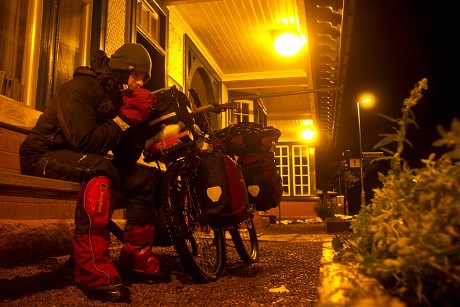
What sort of Logistical support have you been getting?
I must thank my long suffering mum and dad. I carry a SPOT PLB which I set off on every Munro and each night, which allows them to be my ‘safety net’ to ensure if something went wrong I wouldn't be out for long. I was also kindly sponsored a mobile video tracker called Punkt by Luxson which allows a video diary to be made on a Google map (see my website). I regularly call my dad for weather information as he works as a Hydrologist with SEPA and is very clued up on what's happening. The support of family, friends and strangers has been so phenomenal along the way, I don’t think it would be fair to claim an ‘unsupported’ trip. I cannot thank them enough.
I've also been sponsored gear by Rab, DHU Performance Cashmere, Kokatat, Overboard Drybags, SystemX, ExtraUK and Level6
Are you doing a lot of wild camping, bothies etc, or managing to get down to civilisation most nights?
Until mid October I stayed in my tent every night (with exception to a few friends' houses along the way, and a cave). The constant wet weather this winter meant it was simply impossible to keep kit dry when collapsing a wet tent day after day. I use bothies where possible and every week to 10 days I find shelter in a cheap hostel to dry out. Once back on the west coast I think budget will require being back in my tent for the vast majority.
Any particularly memorable moments on the hills so far?
It is quite easy to pick the good moments in the mountains this year: so far it's 51% summits with a view to 49% without so the sunny days really stand out. Climbing the Cullin ridge in 30 degree heat in the summer with friends was brilliant, I would also like to thank the Hamlets for helping drag me up the InPinn. One of the best sunsets I have seen in years on Ben Lawers was a great way to spend my birthday, especially with my good friend Lynn Munro.
Once the snow came in there were a few days with tremendous views on the Glen Coe mountains and an incredible sunset cloud inversion to greet the summit of Ben Nevis.
What do the Scottish mountains and coastline mean to you?
When I set out Scotland’s mountains and coast were all about scenery, the rugged, wild and remote. This is still quite true although it now feels a little smaller and less daunting than before. But most of all it is the communities that now mean the most to me. There is an unquestionable hospitality from almost everyone everywhere you go in Scotland. The coastal and climbing communities are always looking out for each other and will always be there if you need them; to me this is the most precious discovery I have made on my journey.
- INTERVIEW: Exmoor Coast Traverse - England's Best Kept Mountaineering Secret 10 Apr
- REVIEW: Rab Muon 50L Pack 9 Apr
- REVIEW: Boreal Saurus 2.0 22 Mar
- REVIEW: The Cairngorms & North-East Scotland 1 Mar
- REVIEW: Mountain Equipment Switch Pro Hooded Jacket and Switch Trousers 19 Feb
- Classic Winter - East Ridge of Beinn a' Chaorainn 12 Feb
- REVIEW: Salewa Ortles Ascent Mid GTX Boots 18 Jan
- REVIEW: Patagonia Super Free Alpine Jacket 7 Jan
- REVIEW: Deuter Fox - A Proper Trekking Pack For Kids 27 Dec, 2023
- My Favourite Map: Lochs, Rocks, and a Bad Bog 27 Nov, 2023

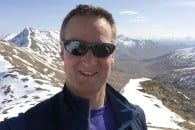

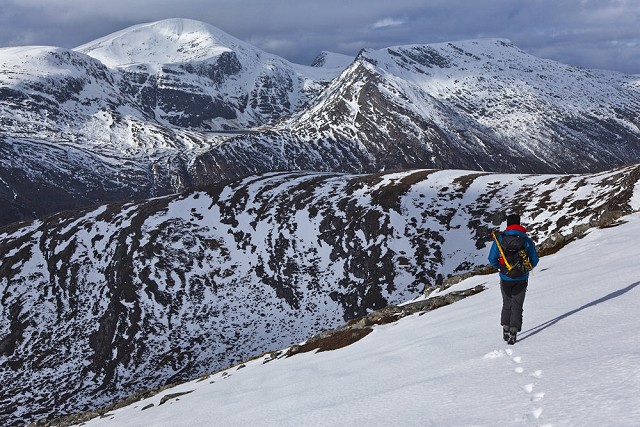
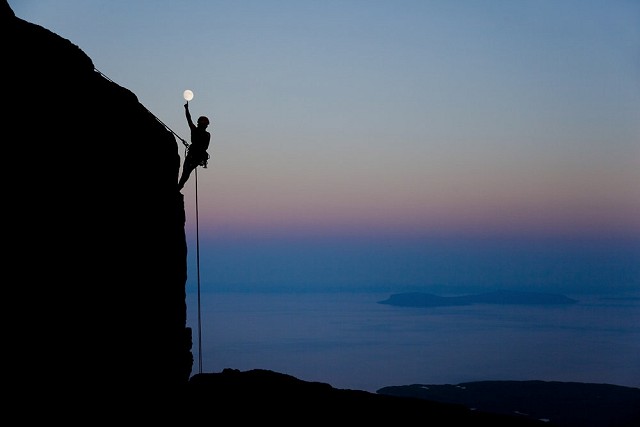
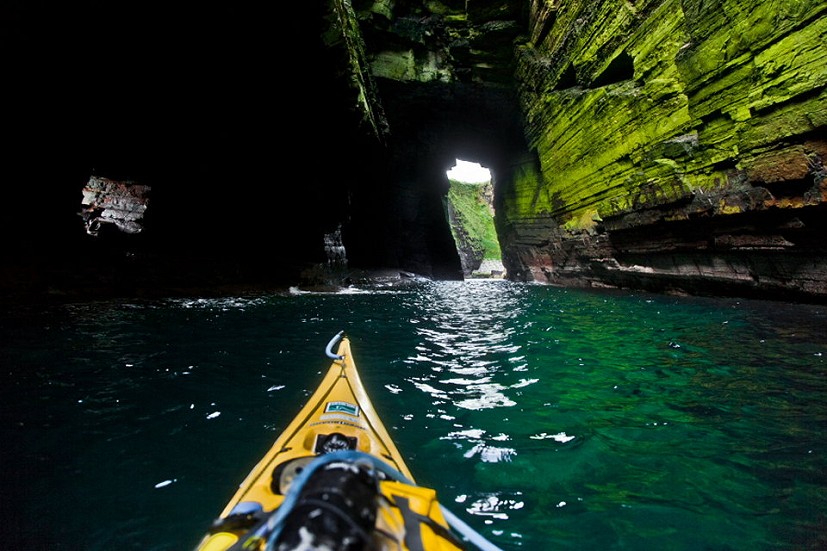
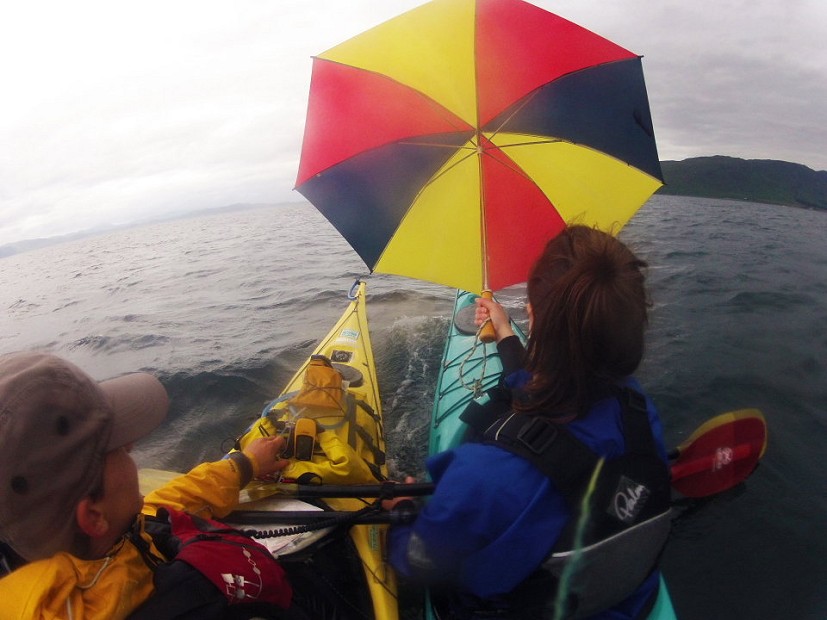
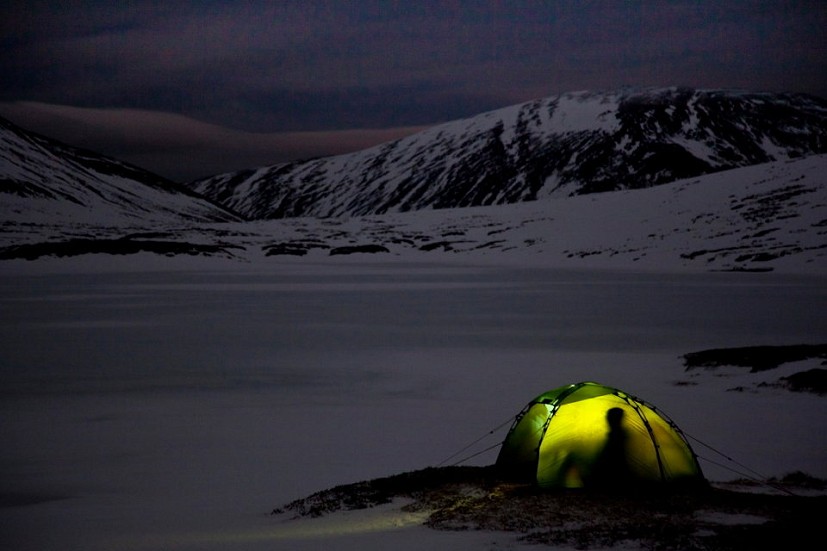
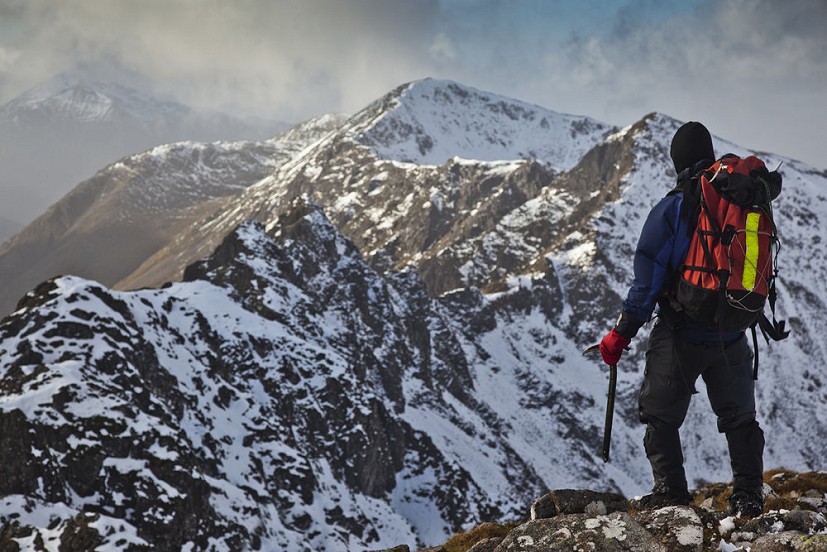
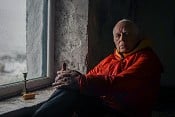
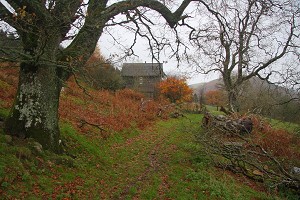
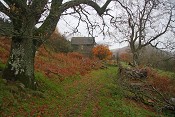
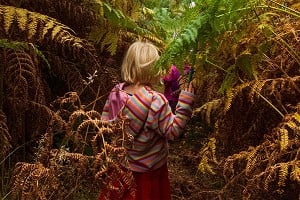
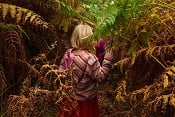


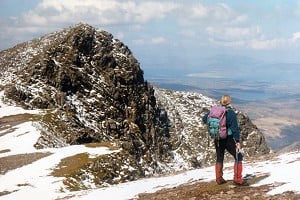
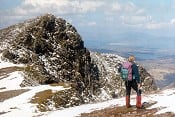
Comments